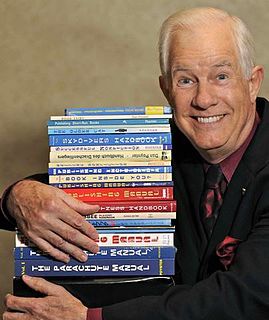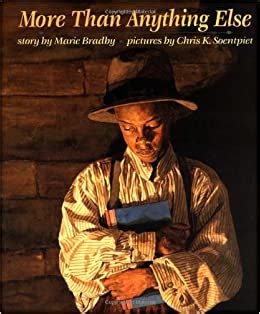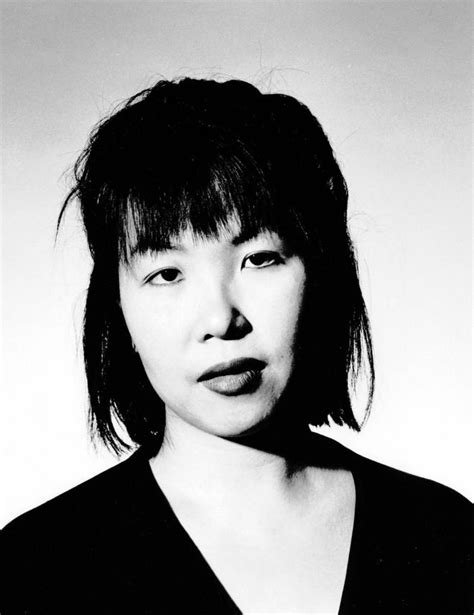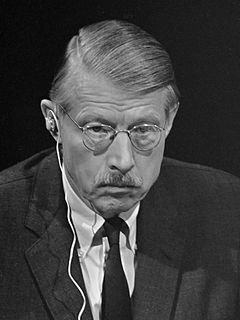A Quote by Dan Poynter
Book writing is not a get-rich-quick scheme. Anyone who decides to write a book must expect to invest a lot of time and effort without any guarantee of success. Books do not write themselves and they do not sell themselves. Authors write and promote their books.
Related Quotes
I always write authors after I read their books. I've been doing it for years. I write a formal letter and send it to them in care of their agent. My mother always taught us to write thank you notes, and if an author puts themselves out there, they like to hear that their book connected with someone.
Well, first you have to love writing. A lot of authors love having written. But I enjoy the actual writing. Beside that, I think the main reason I can be so prolific is the huge amount of planning I do before I start to write. I do a very complete, chapter-by-chapter outline of every book I write. When I sit down to write, I already know everything that's going to happen in the book. This means I've done all the important thinking, and I can relax and enjoy the writing. I could never write so many books if I didn't outline them first.
No strict schedule, but I write nearly daily in my journal. Sometimes I go back and pull out things to give to my characters and my settings in books that I write. But the books themselves are not scheduled. I work on a book when it comes to me, usually about one a year. I spend a lot of time working on it in my head. But getting it published is another matter. So, I have a lot of unpublished manuscripts.
In my twenties, it was so important for me to show people I had all these other books and these other sorts of writing in me, .. A lot of authors, if their first book is a success, they're terrified to write a second one. But in my case, since the first book wasn't considered a literary book, I was really determined to show people I could do other types of writing.
You can't write a book if you've never read a book. And if you've read five books and you try to write a book, your book will mainly encompass the themes and the context of the five books you've read. Now, the more books you read, the more you can bring to a book when you decide to write one. So the more rap I learned, the more I was able to bring to rap when I decided to rap. But this was all subconscious.
The process for writing a picture book is completely different from the process of writing a chapter book or novel. For one thing, most of my picture books rhyme. Also, when I write a picture book I'm always thinking about the role the pictures will play in the telling of the story. It can take me several months to write a picture book, but it takes me several years to write a novel.
I was asked in an interview once: You're writing another book with a female lead? Aren't you afraid you're going to be pigeonholed? And I thought, I write a team superhero book, an uplifting solo hero book, I write a horror-western, and I write a ghost story. What am I gonna be pigeonholed as? Has a man in the history of men ever been asked if he was going to be pigeonholed because he wrote two consecutive books with male leads?
I used to think that if I was ever so lucky as to get a book deal that I would write all the time. All day, every day. I'd write three books a year. The truth, though, is that writing all day isn't really feasible. I could do it, but I'd be folding in on a lot of other aspects of my life, things I care about. And I wouldn't be happy.
The people who review my books, generally, are kind of youngish culture writers who aspire to write books. When someone writes a book review, they obviously already self-identify as a writer. I mean, they are. They're writers, they're critics, and they're writing about a book about a writer who's a critic. So I think it's really hard for people to distance themselves from what they're criticizing.
Do not write to impress others. Authors who write to impress people have difficulty remaining true to themselves. A better path is to write what pleases you and pray that there are others like you. Your first and most important reader is you. If you write a book that pleases you, at least you know one person will like it.
You have to surrender to your mediocrity, and just write. Because it's hard, really hard, to write even a crappy book. But it's better to write a book that kind of sucks rather than no book at all, as you wait around to magically become Faulkner. No one is going to write your book for you and you can't write anybody's book but your own.


































